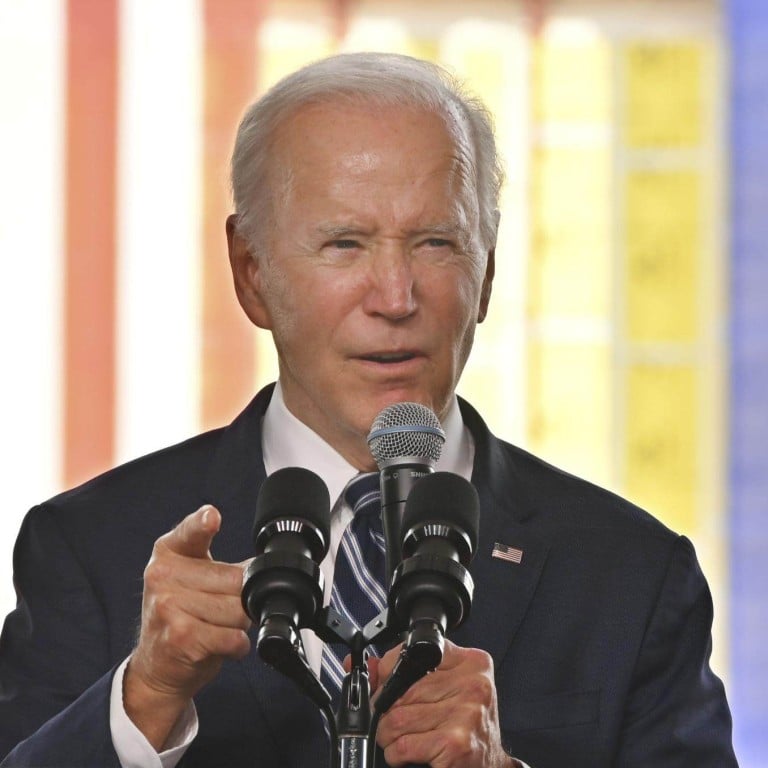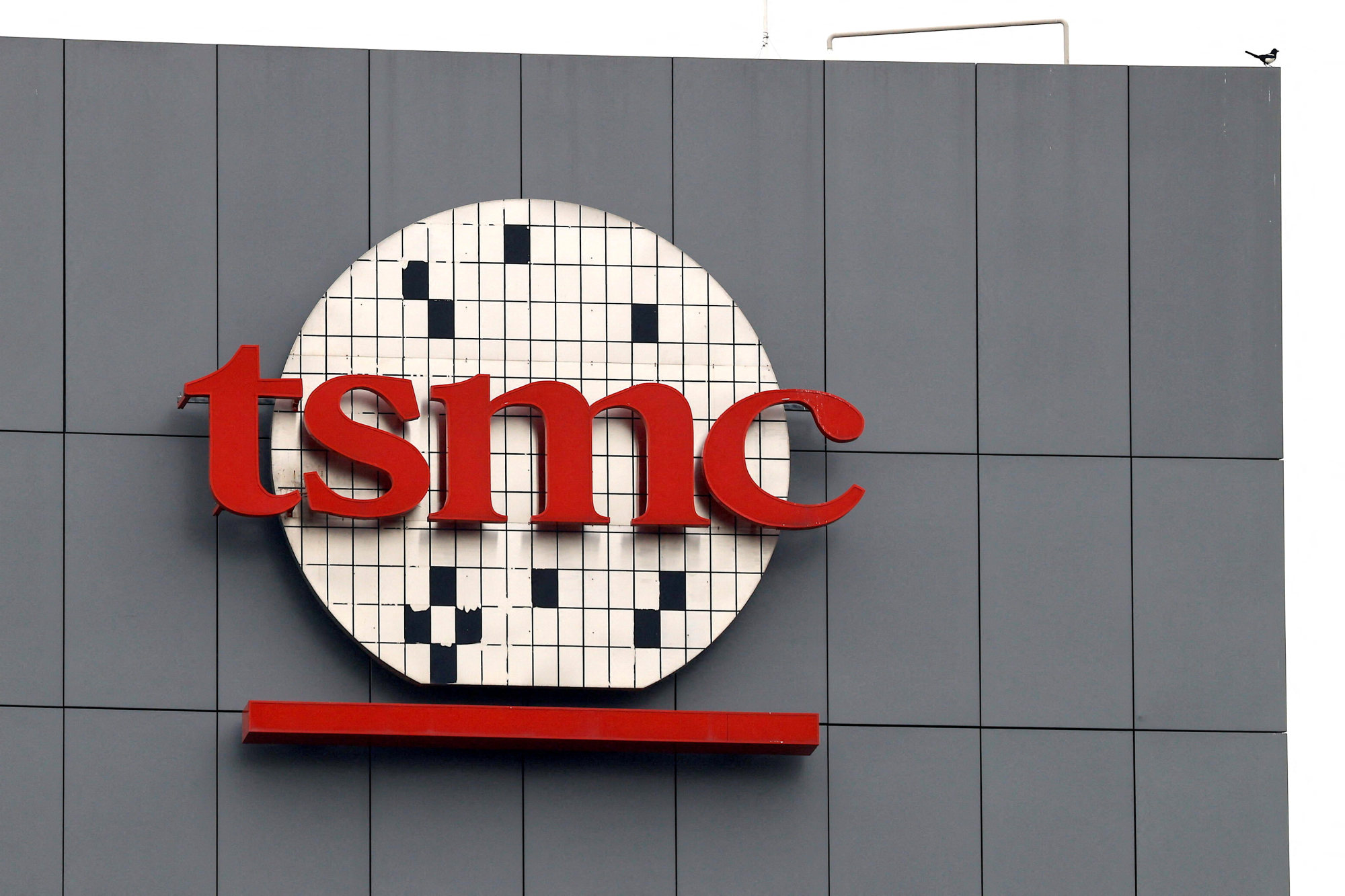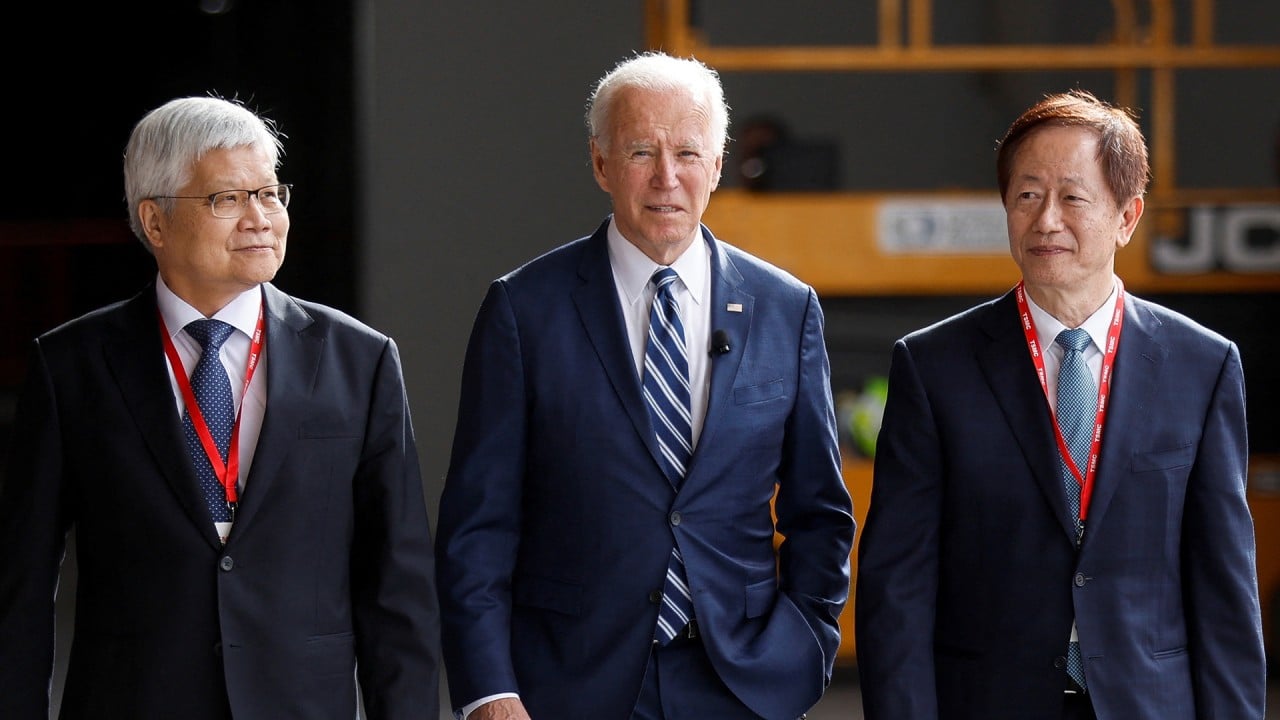
US Senate committee passes bill that would cut taxes on Taiwanese firms operating in US
- Legislation approved unanimously by Senate Finance Committee would establish the first US tax deal specifically for Taiwan businesses
- The bill, which supports President Joe Biden’s goal of raising chip manufacturing in the US, would cut the tax rate on Taiwan companies’ US income by two-thirds
The bill – which, among other benefits, would cut by two-thirds the withholding tax rate on income earned in the US by qualified Taiwanese entities – passed the Senate Finance Committee unanimously in a special session.
Under the bill’s terms, a 30 per cent withholding tax on US-sourced income received by non-resident aliens and foreign corporations, interest and royalties would drop to 10 per cent.
A 15 per cent rate on US-sourced dividends would also fall, to 10 per cent.
The chips act earmarks nearly US$53 billion in semiconductor production incentives in a bid to reduce American manufacturers’ reliance on those made in China.
It also provides US$200 billion for research into artificial intelligence, quantum computing and other cutting-edge technologies to response to China’s advances in these areas.
The tax relief act, which must be passed by both chambers of Congress before it goes to the White House for Biden’s signature, is the latest in a series of initiatives meant to strengthen US economic ties with Taiwan.
But the chips act, while not specifically a US-Taiwan effort, has attracted the most attention for the sheer size of the investments that it supports.
TSMC’s construction of a chip manufacturing plant in Phoenix, Arizona, was announced in 2020 during the Donald Trump administration, before the Chips Act became law last year.
However, the project has received massive grants and subsidies from the act, making it a symbol of Biden’s efforts to bolster chip manufacturing in the US.
In a statement ahead of Thursday’s vote, Wyden cited some US$45 billion invested by Taiwan semiconductor companies in the US over the past five years “and tens of billions more” to come as the Chips Act takes effect.

“To ensure that our country continues to grow these investments in America, relief of double taxation between the US and Taiwan is an important next step,” he said.
“We do not want these investments to fall through or go to other countries because we are not providing double-tax relief.”
The bill’s Republican co-sponsor, Senator Mike Crapo of Idaho – explaining why the Senate Foreign Relations Committee was not handling the legislation – alluded to Taiwan’s status as a jurisdiction lacking formal diplomatic recognition by Washington.
“Taiwan’s very unique status requires a very unique solution: it requires this committee’s expertise to make direct changes to the tax code to deliver treaty-like benefits for American and Taiwanese workers and businesses operating across our borders,” Crapo said.
Washington switched official diplomatic recognition from Taipei to Beijing in the 1970s, part of a strategy initiated by President Richard Nixon to isolate the Soviet Union.
Crapo also cited the results of a 2020 survey conducted by the American Institute in Taiwan, Washington’s de facto embassy on the self-ruled island, which showed a majority of Taiwanese companies with a US presence considering the current 30 per cent dividend withholding tax an impediment to additional investment in the country.
The US Chamber of Commerce, whose members include industry giants like Pfizer, Google and General Electric, said the bill “would provide much-needed certainty to US businesses investing in Taiwan, and vice versa, by establishing clear rules for the avoidance of double taxation and mitigating other tax barriers to cross-border trade and investment”.
“The United States–Taiwan Expedited Double-Tax Relief Act would reduce unnecessary double taxation, prevent fiscal evasion, and remove barriers to commerce between our two economies,” the trade group added.
While the bill stipulates that the tax relief for Taiwan entities will not take effect until the Taiwanese government passes reciprocal provisions, Taipei has signalled strong support for it.
Referring to TSMC’s project in Phoenix, Taiwan’s Economic Affairs Minister Wang Meihua said at an event in Seattle last month that it was “very important” to avoid double taxation.
Tsai expressed the same sentiment during a meeting with Heritage Foundation founder Edwin Feulner in Taipei in March.
“It is our hope that Taiwan and the US will further reach a bilateral trade agreement and an avoidance of double taxation agreement, which will help deepen our economic and trade partnership and enhance our industrial competitiveness,” she said.


